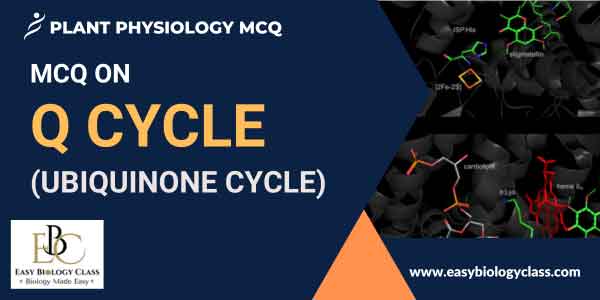The Q cycle is a mechanism in the electron transport chain’s complex III (cytochrome bc1 complex) that transfers electrons from ubiquinol (QH2) to cytochrome c. It involves proton pumping from the mitochondrial matrix to the intermembrane space, contributing to the proton gradient for ATP synthesis. This is an MCQ on Q Cycle and its Significance in Electron Transport System in Mitochondria and Chloroplast.
<<< Back to Plant Physiology MCQ Page
You may also like... NOTES QUESTION BANK COMPETITIVE EXAMS. PPTs UNIVERSITY EXAMS DIFFERENCE BETWEEN.. MCQs PLUS ONE BIOLOGY NEWS & JOBS MOCK TESTS PLUS TWO BIOLOGY PRACTICAL


